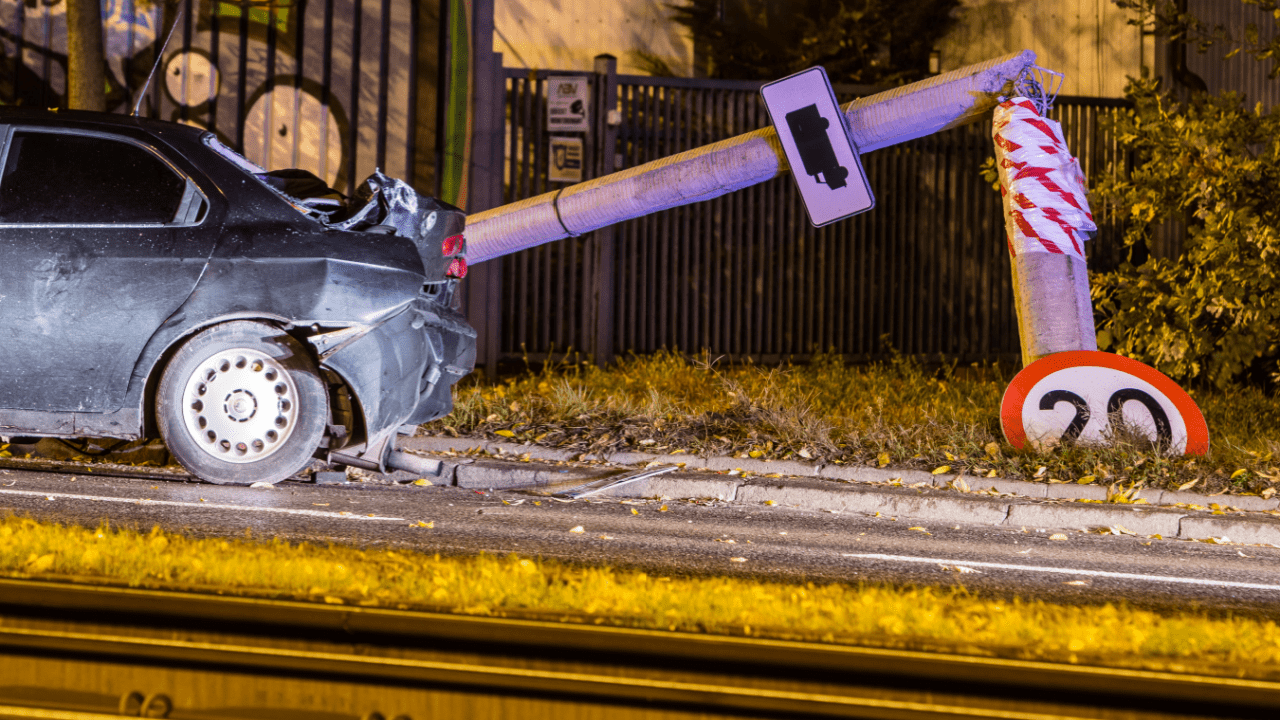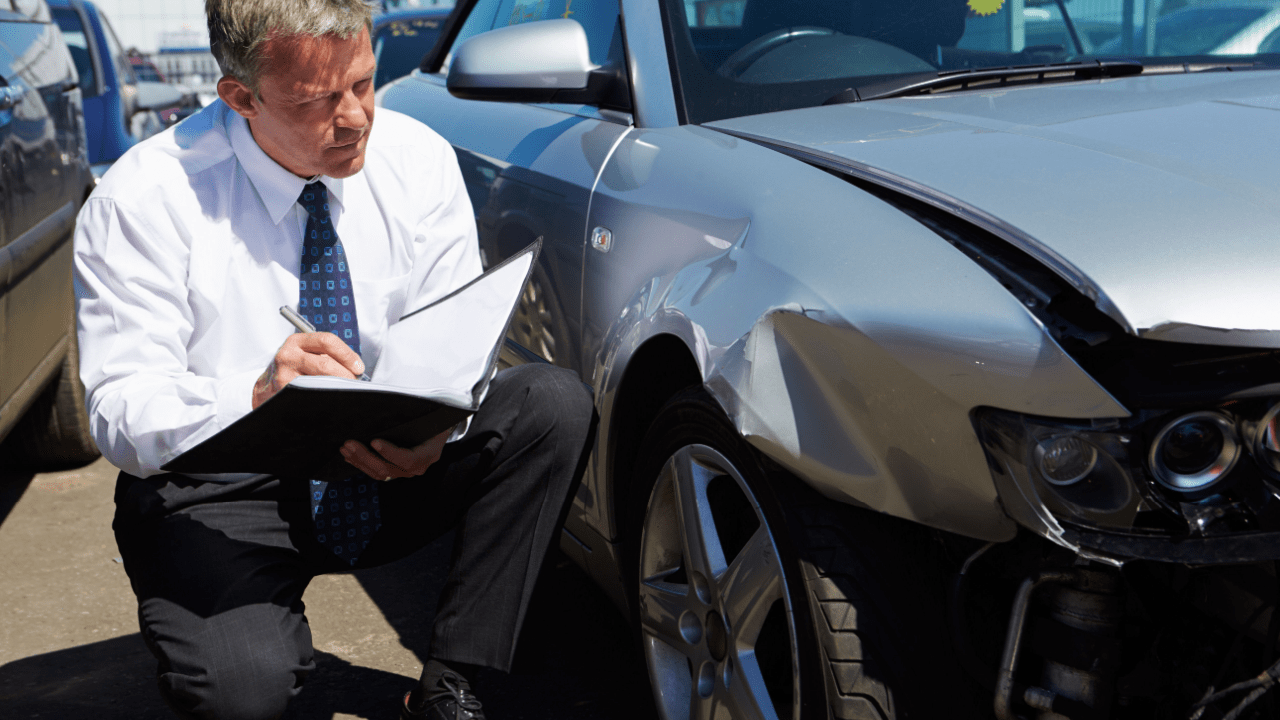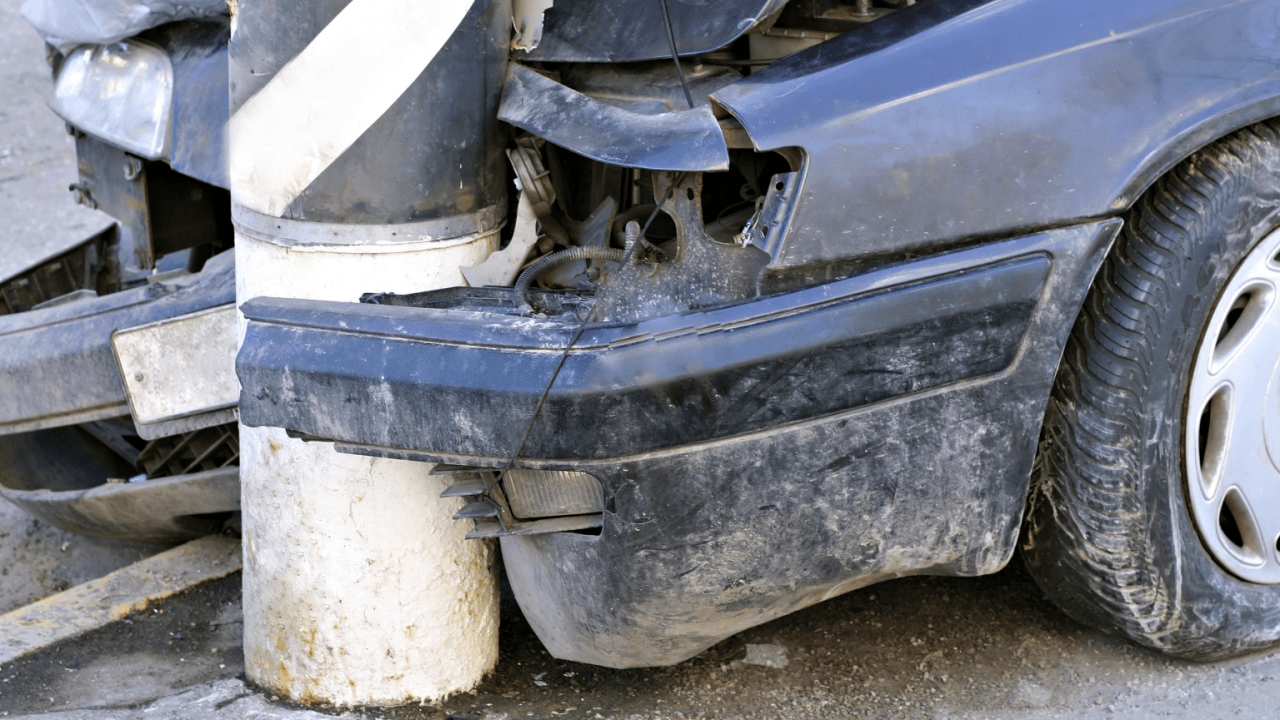- Mon - Fri: 8.30 AM - 5:00 PM
- 26565 Agoura Rd., 200, Calabasas, CA 91302
- 818-884-8075

What Happens If You Hit a Pole and Leave? Legal & Insurance Risks Explained
What Happens If You Hit a Pole and Leave the Scene?
What happens if you hit a pole and leave the scene might not seem like a big deal in the moment—maybe you clipped a light pole while backing up or slid into a utility pole on a quiet road. No one else was involved, your car still runs, and you decide to drive away. But the consequences can be more serious than you think.
The answer: a lot more than you might expect.
Leaving the scene after hitting a pole is more than just a traffic mistake—it can be considered a criminal offense. Whether it’s classified as a misdemeanor or felony, it could result in fines, license suspension, insurance trouble, or even jail time.
Let’s break down the consequences and what you should do instead.
Is It Illegal to Leave After Hitting a Pole?
Yes. In almost every U.S. state, it is illegal to leave the scene of an accident involving property damage—even if no one else is involved and no one was hurt.
So, what happens if you hit a pole and leave? The law treats it as a type of hit-and-run, even if the damage was only to a utility pole, sign, or guardrail.
Legal requirements typically include:
- Stopping at the scene immediately
- Attempting to contact the property owner or authorities
- Reporting the accident within a certain time frame
Utility poles are often owned by municipalities or electric companies, so damage to them is treated seriously—and may involve public safety hazards like downed wires or traffic disruptions.
Legal Consequences You Could Face
Failing to stop or report the incident may result in criminal charges.
Common consequences include:
- Hit-and-run charges (even if it’s a stationary object)
- Fines ranging from hundreds to thousands of dollars
- Points on your license or suspension
- Jail time in serious cases
- Restitution for the damaged property
- Misdemeanor or felony record, depending on the damage
In some states, if you hit a pole and leave the scene without notifying authorities, it’s a Class A misdemeanor. In others, if the pole is damaged badly or public danger is created, it could be escalated to a felony offense.
So when considering what happens if you hit a pole and leave, know that a simple accident can quickly become a criminal case if not handled correctly.
For those facing charges, securing guidance from an attorney experienced in criminal defense leads can make a significant difference in how your case is resolved.
Insurance and Financial Fallout
Leaving the scene doesn’t just affect your legal standing—it can seriously impact your insurance too.
Here’s what may happen:
- Your insurance provider could deny your claim due to violation of policy terms
- You may be held personally liable for repairs to the pole
- The utility company or city may sue you for damages
- Your premiums could skyrocket, or your policy may be canceled
- Future insurance applications may be flagged due to the hit-and-run classification
Even if you later try to report the accident, your insurer may view the delay as suspicious or intentional, further complicating your claim.
In short, what happens if you hit a pole and leave? You could end up paying more—legally and financially—than if you had reported it properly from the start.
If you’re unsure how your insurance may handle this scenario, visiting a resource like TrafficAccidents.com’s insurance guide can provide further insight into policy expectations and consequences.
What to Do Instead of Leaving
If you’ve hit a pole or any other fixed object, stay calm and take the proper steps.
Here’s what you should do:
- Stop immediately and assess the damage—to your car and the pole
- Call local law enforcement to report the incident
- Do not leave the scene, even if the damage seems minor
- Take photos of the damage for your records
- Contact your insurance company and file a report
- If there are downed power lines or safety hazards, stay clear and call 911
Remember, utility poles are considered public infrastructure, and damaging them can have broader safety implications than you may realize.
Being transparent protects you from legal trouble, avoids criminal charges, and allows your insurance provider to process your claim properly. If the incident results in injuries or further complications, working with a firm that understands auto accident leads can help direct you to the right legal assistance.
Understanding the Consequences of Leaving After Hitting a Pole
What happens if you hit a pole and leave goes far beyond a fender-bender—it can result in criminal charges, costly fines, insurance denial, and a lasting impact on your driving record. Even if no one was hurt, driving away from property damage can be classified as a hit-and-run in most states. The responsible course of action is always to stop, report the damage, and follow the proper legal steps. Doing so protects your rights, avoids criminal penalties, and preserves your ability to file an insurance claim.
Need Legal Help After Hitting a Pole? Protect Yourself Today
If you’re unsure what happens if you hit a pole and leave, or you’re already facing legal trouble from a hit-and-run accusation, Legal Brand Marketing can help. We connect drivers with experienced attorneys who understand local laws, insurance regulations, and how to minimize penalties. Whether you’re dealing with a current case or want advice before filing a report, we’re here to guide you.
Contact us today to speak with a legal professional and get the support you need to protect your record and your future.
Frequently Asked Questions (FAQs)
1. Can I be charged even if no one saw me hit the pole?
Yes. If damage is discovered and traced back to your vehicle—through eyewitness reports, surveillance footage, or license plate recognition—you can still be held legally responsible.
2. Will my insurance know if I leave the scene and don’t report it?
Possibly. If a report is made by a third party (e.g., utility company, police), your insurer could be notified. Failing to self-report may result in claim denial or policy cancellation if discovered later.
3. What if I hit a pole on private property, like in a parking lot?
Even if the pole is on private property, you’re typically still required to stop and report the damage to the property owner or police. Leaving can still be considered a hit-and-run.
4. Is it ever okay to leave the scene briefly to get help?
Yes, but only if necessary and safe. It’s best to call emergency services from the scene. If you do leave temporarily, return promptly and report the incident.
5. Can I fix the damage and avoid reporting it if no one was hurt?
No. Property damage—even without injuries—must still be reported by law in most states. Failing to do so can lead to legal and financial consequences later on.
Key Takeaways
- Leaving the scene after hitting a pole is illegal and often treated as a hit-and-run, even without other vehicles involved.
- You could face criminal charges, fines, or jail time, especially if public property is damaged or safety risks are created.
- Insurance companies may deny your claim or cancel your policy if you fail to report the incident properly.
- The responsible action is to stop, report, and document the accident, even if it seems minor.
- Taking accountability protects your legal record and insurance standing, preventing long-term financial and legal consequences.



